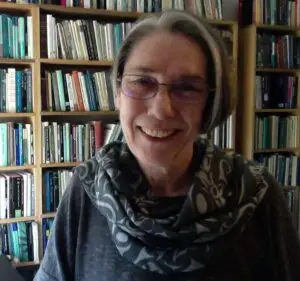Alison Wylie

Professor Alison Wylie
- Post Nominals: FAHA, FBA, FRSC
- Fellow Type: Corresponding Fellow
- Elected to the Academy: 2019
Biography
Alison Wylie holds a Canada Research Chair (Tier 1) in Philosophy of the Social and Historical Sciences at the University of British Columbia where she is a Professor of Philosophy. She has a long-standing interest in philosophical questions about the nature, grounds, and credibility of evidential reasoning in archaeology. She also publishes on feminist philosophy of science and standpoint theory. Here the questions that intrigue her have to do with ideals of objectivity: in what sense are knowers and knowledge claims ‘objective’, given the ineliminable role of values and interests in all aspects of inquiry? A complementary set of questions are normative: how can research be held accountable, in its aims and practice, to the diverse communities it affects? Wylie addresses these jointly ethical/political and epistemic issues as they arise in the context of archaeological research undertaken in partnership with Indigenous communities.
Wylie’s recent publications in philosophy of science/archaeology include “Humanizing Science and Philosophy of Science” (Canadian Journal of Philosophy 2022), “Triangulation and Traceability” (Data Journeys in the Sciences 2020), and two books co-authored/co-edited with archaeologists Robert Chapman: Material Evidence (2015) and Evidential Reasoning in Archaeology (2016). Her work on feminist philosophy of science is represented by a UBC-based project “Standpoint Theory: Formation, Contestation and Legacies,” and by “Why Standpoint Matters” (2012 APA Presidential Address) and “What Knowers Know Well: Standpoint Theory in the Formation of Gender Archaeology (Scientiae Studia 2017). And her discussions of collaborative practice include “A Plurality of Pluralisms” (Objectivity in Science 2015), “Collaborative Archaeology in Global Perspective” (Archaeologies 2019), and “Bearing Witness: What Can Archaeology Contribute in an Indian Residential School Context?” with Eric Simons and Andrew Martindale (Working With and For the Ancestors 2021).
Wylie is past President of the Philosophy of Science Association (2019-2020) and of the American Philosophical Association (2011-2012), and she is a fellow of the Royal Society of Canada and the British Academy as well as the Australian Academy of the Humanities. She affiliated with the Indigenous/Science research network at UBC, and is a member of the Leadership Circle and ethics co-lead for the NSF-funded Center for Braiding Indigenous Knowledges and Science (CBIKS).
